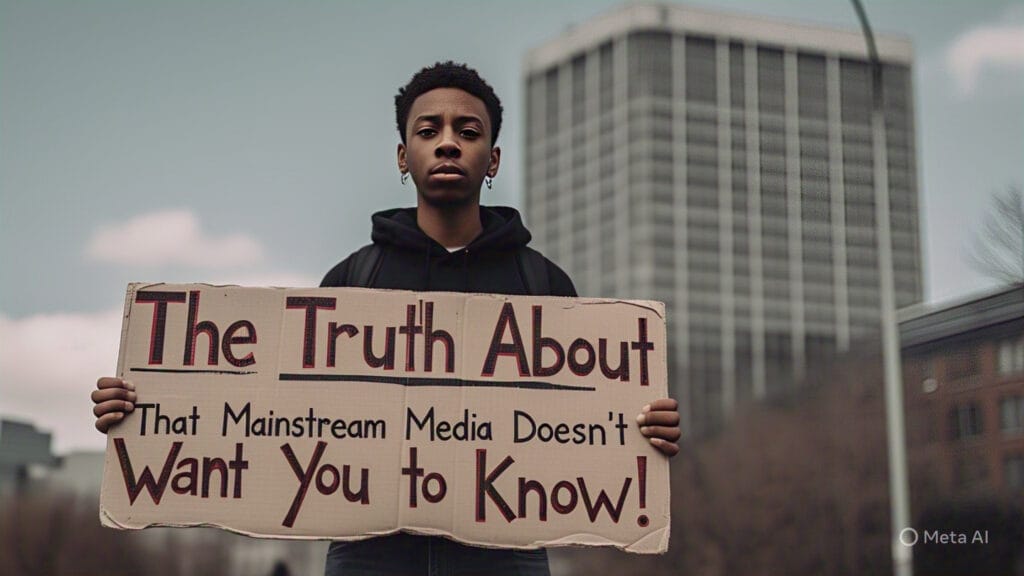Islam, the world’s second-largest religion, is followed by over 2 billion people globally. Yet, it remains one of the most misunderstood faiths, often misrepresented by mainstream media. Sensationalized headlines, selective reporting, and a lack of context have painted a distorted picture of Islam, overshadowing its core principles of peace, compassion, and submission to one God (Allah). This article aims to uncover the truth about Islam that mainstream media doesn’t want you to know, offering an authentic, in-depth exploration of its teachings, practices, and the role of Islamic duas (supplications) in daily life.
Whether you’re a curious seeker, a new Muslim, or someone looking to deepen your understanding, this comprehensive guide will provide clarity, dispel myths, and highlight the beauty of Islam. We’ll cover essential aspects of the faith, practical ways to connect with its teachings, recommended resources, and Islamic duas to enrich your spiritual journey. Additionally, we’ll include fees, reviews, and ratings for online platforms to help you explore Islam authentically, ensuring this guide is both informative and actionable.

Why Mainstream Media Misrepresents Islam
Mainstream media often focuses on isolated events or extremist actions, ignoring the broader context of Islam’s teachings and the diversity of its followers. This selective portrayal creates stereotypes, fueling misconceptions about Muslims and their faith. Here are some reasons why this happens:
- Sensationalism Sells: Stories of conflict or controversy attract more viewers than narratives of peace or charity.
- Lack of Expertise: Many journalists lack deep knowledge of Islam, leading to oversimplified or inaccurate reporting.
- Political Agendas: Media outlets may align with political narratives that frame Islam as a threat to Western values.
- Cultural Bias: Stereotypes about Muslims as “foreign” or “violent” persist due to historical prejudices.
The Quran, Islam’s holy book, emphasizes truth and justice, stating:
“O you who have believed, be persistently standing firm in justice, witnesses for Allah, even if it be against yourselves or parents and relatives.” (Quran 4:135)
By exploring Islam directly through its primary sources—the Quran, Sunnah (teachings of Prophet Muhammad, SAW), and scholarly works—you can uncover the truth that media often overlooks.
Reads more:
The Core Truths About Islam
To understand Islam authentically, let’s dive into its foundational principles, which reflect its essence of peace, mercy, and submission to Allah (SWT).
1. Islam Means Submission to One God
Islam is rooted in the concept of tawhid (oneness of God). Muslims believe in one Creator, Allah, who is merciful, just, and all-powerful. This belief fosters humility and purpose, guiding every aspect of a Muslim’s life.
2. The Quran Is a Universal Guide
Revealed over 1,400 years ago, the Quran is a timeless manual for humanity. It addresses spirituality, ethics, law, and personal growth, encouraging reflection:
“This is the Book about which there is no doubt, a guidance for those conscious of Allah.” (Quran 2:2)
Unlike media portrayals, the Quran promotes peace, compassion, and coexistence, urging Muslims to treat others with kindness.
3. Prophet Muhammad (SAW) Exemplified Mercy
Prophet Muhammad (SAW) is the final messenger in Islam, sent as a “mercy to the worlds” (Quran 21:107). His life—marked by forgiveness, generosity, and justice—serves as a model for Muslims. Media often ignores his teachings, focusing instead on misrepresentations of his legacy.
4. Islam Values Diversity and Unity
Islam embraces diversity, recognizing all humans as part of one family under Allah. The Quran celebrates cultural differences:
“And among His signs is the creation of the heavens and the earth and the diversity of your languages and colors.” (Quran 30:22)
Muslims are encouraged to coexist peacefully with people of other faiths, contrary to media narratives of division.
5. Jihad Is Not What You Think
The term “jihad” is often misused to imply violence. In reality, jihad means “struggle” or “effort” in the path of Allah. The greatest jihad is the internal struggle against one’s ego, while defensive jihad is strictly regulated by Islamic law to protect justice and freedom.
Islamic Duas: The Heart of Spiritual Connection
Islamic duas are supplications that connect Muslims to Allah, seeking guidance, forgiveness, and blessings. These prayers are a cornerstone of daily life, reflecting Islam’s emphasis on mindfulness and reliance on God. Incorporating duas into your routine can deepen your understanding of Islam’s spiritual depth, often overlooked by mainstream media.
Why Duas Matter
- Strengthen Faith: Duas remind Muslims of Allah’s presence and mercy.
- Provide Comfort: They offer solace during challenges, fostering resilience.
- Enhance Gratitude: Duas encourage thankfulness for blessings, big and small.
Key Islamic Duas for Daily Life
Here are some powerful Quranic and Prophetic duas to integrate into your spiritual practice:
- Dua for Guidance: “Rabbana la tuzigh quloobana ba’da idh hadaytana wa hab lana min ladunka rahmah.”
(Translation: Our Lord, let not our hearts deviate after You have guided us and grant us mercy from Yourself.) (Quran 3:8) - Dua for Protection: “Rabbana atina fid-dunya hasanatan wa fil-akhirati hasanatan wa qina ‘adhaban-nar.”
(Translation: Our Lord, give us good in this world and good in the Hereafter, and protect us from the punishment of the Fire.) (Quran 2:201) - Dua for Knowledge: “Rabbi zidni ‘ilma.”
(Translation: My Lord, increase me in knowledge.) (Quran 20:114) - Dua for Forgiveness: “Rabbana zalamna anfusana wa in lam taghfir lana wa tarhamna lanakoonanna minal-khasireen.”
(Translation: Our Lord, we have wronged ourselves, and if You do not forgive us and have mercy upon us, we will surely be among the losers.) (Quran 7:23) - Dua for Barakah (Blessings): “Allahumma barik lana fi ma razaqta.”
(Translation: O Allah, bless us in what You have provided.)
How to Incorporate Duas
- Morning and Evening: Recite protective duas, like Ayat al-Kursi (Quran 2:255), after Fajr and Maghrib prayers.
- Before Tasks: Say a dua for success before studying, working, or traveling.
- In Difficult Times: Turn to duas for patience and relief during hardships.
- With Sincerity: Make duas with focus, humility, and trust in Allah’s wisdom.
Dispelling Common Myths About Islam
Mainstream media perpetuates several myths about Islam. Let’s address these with facts, drawing from Islamic sources and scholarly insights.
Myth 1: Islam Oppresses Women
Truth: Islam grants women rights to education, property, and inheritance, established over 1,400 years ago. The Quran emphasizes equality in spiritual worth:
“Indeed, the Muslim men and Muslim women, the believing men and believing women… for them Allah has prepared forgiveness and a great reward.” (Quran 33:35)
While cultural practices in some regions may deviate, Islam’s core teachings uplift women’s dignity and autonomy.
Myth 2: Islam Promotes Violence
Truth: Islam prioritizes peace, permitting defensive action only under strict conditions. The Quran states:
“Fight in the way of Allah those who fight you but do not transgress. Indeed, Allah does not like transgressors.” (Quran 2:190)
The Prophet (SAW) taught mercy, even in conflict, and forbade harming civilians or destroying property.
Myth 3: Islam Is Anti-Science
Truth: Islam encourages knowledge and exploration. The Quran contains verses on natural phenomena, inspiring early Muslim scientists like Ibn Sina and Al-Khwārizmī. The pursuit of knowledge is a religious duty:
“Say, ‘My Lord, increase me in knowledge.’” (Quran 20:114)
Myth 4: Muslims Are Monolithic
Truth: Muslims are diverse, spanning cultures, languages, and interpretations. From Indonesia to Morocco, Islam adapts to local contexts while maintaining universal principles.
Myth 5: Sharia Is Barbaric
Truth: Sharia (Islamic law) is a framework for ethical living, covering worship, family, and justice. Its application varies, and harsh punishments are rare, requiring stringent conditions. Sharia emphasizes mercy and rehabilitation.
How to Explore Islam Authentically
To uncover the truth about Islam, bypass media filters and engage with primary sources and credible resources. Here’s a step-by-step guide:
Step 1: Read the Quran
Start with a reliable translation, such as:
- Sahih International: Clear and accurate.
- The Clear Quran by Dr. Mustafa Khattab: Beginner-friendly, modern English.
- Yusuf Ali: Poetic, widely respected.
Resources:
- Quran.com: Free translations, tafsir (exegesis), and audio recitations.
- Al-Tafsir.com: Access to classical tafsir like Ibn Kathir.
- Tarteel App: AI-powered tool for recitation and memorization (free; premium ~$6.99/month).
Dua for Understanding:
“Allahummaftah ‘alayya hikmataka wanshur ‘alayya min khaza’in rahmatika.”
(Translation: O Allah, open to me Your wisdom and shower upon me from the treasures of Your mercy.)
Step 2: Study the Sunnah
The Sunnah—Prophet Muhammad’s (SAW) teachings and practices—complements the Quran. Read authentic hadith collections like:
- Sahih al-Bukhari
- Sahih Muslim
Resources:
- Sunnah.com: Free access to hadith in multiple languages.
- Yaqeen Institute: Articles and videos on the Prophet’s life (free; premium ~$10/month).
Step 3: Learn Basic Islamic Beliefs
Understand the Six Pillars of Faith (belief in Allah, angels, books, prophets, Day of Judgment, and divine decree) and the Five Pillars of Islam (Shahada, Salah, Zakat, Sawm, Hajj).
Resources:
- SeekersGuidance: Free courses on Islamic creed and practices.
- Al-Maghrib Institute: In-depth seminars (~$100-$300/course).
Step 4: Connect with Scholars and Communities
Engage with knowledgeable scholars and Muslim communities to gain authentic insights.
Online Platforms:
- Yaqeen Institute: Research-based content (4.9/5 stars).
- SeekersGuidance: Free and paid courses (4.5/5 stars).
- Local Mosques: Many offer free classes or halaqas (study circles).
Social Media:
- Follow pages like MuslimMatters or Quranic Reflections for daily inspiration.
Step 5: Learn Islamic Duas
Memorize and practice duas to strengthen your spiritual connection. Apps like Muslim Pro (free; premium ~$4.99/month) offer dua collections with translations and audio.
Dua for Guidance:
“Allahumma ihdini wa saddidni.”
(Translation: O Allah, guide me and keep me on the straight path.)
Online Platforms to Explore Islam
Digital platforms make learning about Islam accessible and affordable. Here’s a breakdown of top resources, including fees, reviews, and ratings.
1. Quran Academy
- Features: Live tutoring, Quran memorization, tafsir courses.
- Fees: $49-$199/month, based on course intensity.
- Reviews: 4.7/5 stars. Praised for personalized tutoring; some note scheduling issues.
- Website: quranacademy.io
2. Bayyinah Institute
- Features: Arabic courses, tafsir lectures, podcasts.
- Fees: ~$11/month for Bayyinah TV subscription.
- Reviews: 4.8/5 stars. Loved for engaging content by Nouman Ali Khan; some want more interactivity.
- Website: bayyinah.com
3. Understand Quran Academy
- Features: Interactive lessons, quizzes, mobile app.
- Fees: $50-$150/course; free introductory lessons.
- Reviews: 4.6/5 stars. Affordable and beginner-friendly; occasional app glitches reported.
- Website: understandquran.com
4. Tarteel
- Features: AI-powered recitation feedback, memorization tracker.
- Fees: Free; premium ~$6.99/month.
- Reviews: 4.9/5 stars. Highly rated for innovative technology and ease of use.
- Website: tarteel.ai
5. Yaqeen Institute
- Features: Research papers, videos, webinars on Islamic topics.
- Fees: Free; premium ~$10/month.
- Reviews: 4.9/5 stars. Credible and well-researched; academic tone may not suit all.
- Website: yaqeeninstitute.org
6. Al-Maghrib Institute
- Features: Seminars on Quran, hadith, and Islamic law.
- Fees: $100-$300/course.
- Reviews: 4.7/5 stars. Engaging instructors; cost may be high for some.
- Website: almaghrib.org
7. SeekersGuidance
- Features: Free and paid courses on Islamic sciences.
- Fees: Free; donations encouraged; paid courses vary.
- Reviews: 4.5/5 stars. Valued for free resources; pacing can be slow.
- Website: seekersguidance.org
Fees Structure
| Platform | Cost | Notes |
|---|---|---|
| Quran Academy | $49-$199/month | Discounts for long-term plans. |
| Bayyinah TV | ~$11/month | Affordable for video-based learning. |
| Understand Quran Academy | $50-$150/course | Free lessons; group discounts available. |
| Tarteel | Free; premium ~$6.99/month | Budget-friendly AI tools. |
| Yaqeen Institute | Free; premium ~$10/month | Free content is extensive. |
| Al-Maghrib Institute | $100-$300/course | Premium seminars with top scholars. |
| SeekersGuidance | Free; donations encouraged | Paid courses for advanced learners. |
Note: Prices are approximate and may vary. Check official websites for updates.
How to Choose a Platform
- Define Your Goals: Focus on Quran memorization, Arabic, or Islamic history?
- Check Reviews: Use Trustpilot or Sitejabber for user feedback.
- Try Free Trials: Most platforms offer free lessons to test suitability.
- Budget Wisely: Free resources like Quran.com are great for beginners.
Practical Ways to Live Islam’s Truth
Islam is not just a belief system—it’s a way of life. Here’s how to embody its principles, countering media misconceptions through action:
1. Practice the Five Pillars
- Shahada: Declare faith in one God and Prophet Muhammad (SAW).
- Salah: Pray five times daily, connecting with Allah.
- Zakat: Give charity to support the needy.
- Sawm: Fast during Ramadan to cultivate self-discipline.
- Hajj: Perform pilgrimage to Mecca, if able.
2. Emulate Prophetic Character
Follow the Prophet’s (SAW) example of kindness, honesty, and forgiveness. Small acts, like smiling or helping a neighbor, reflect Islam’s beauty.
3. Engage in Community Service
Volunteer at mosques, food banks, or interfaith events to showcase Islam’s emphasis on service and unity.
4. Educate Others
Share accurate information about Islam through conversations, social media, or blogging. Resources like MuslimMatters.org offer tips for effective dawah (invitation to Islam).
5. Use Duas for Daily Guidance
Incorporate duas to stay grounded. For example:
“Allahumma a’inni ‘ala dhikrika wa shukrika wa husni ‘ibadatika.”
(Translation: O Allah, help me to remember You, thank You, and worship You in the best manner.)
SEO Tips for Islamic Blogs
To reach a wider audience with your blog, optimize for search engines while maintaining authenticity:
- Use Keywords: Include terms like “truth about Islam,” “Islamic duas,” “learn Quran online,” and “Islam myths” in headings and content.
- Write In-Depth Content: Long-form articles like this build authority and trust.
- Add Internal Links: Link to related posts on your blog, such as guides on Salah or Ramadan.
- Optimize for Mobile: Ensure your site is mobile-friendly for global readers.
- Encourage Engagement: Invite comments or shares to boost visibility.
- Leverage Reviews: Showcase user testimonials for courses or resources to build credibility.
For more tips, explore Moz or Google’s SEO Starter Guide.
Avoiding Missteps in Learning About Islam
To ensure your journey is authentic, avoid these common mistakes:
- Relying on Unverified Sources: Stick to credible platforms like Quran.com or Yaqeen Institute.
- Ignoring Context: Understand Quranic verses through tafsir to avoid misinterpretation.
- Overlooking Diversity: Recognize that Islamic practices vary across cultures.
- Neglecting Action: Apply what you learn through worship, charity, and kindness.
- Falling for Stereotypes: Challenge media biases by engaging with primary sources.
Dua for Protection from Misguidance:
“Allahumma ihdini wa saddidni.”
(Translation: O Allah, guide me and keep me on the straight path.)
Conclusion: Discover Islam’s Truth for Yourself
The truth about Islam—its emphasis on peace, mercy, and submission to Allah—is often obscured by mainstream media’s selective narratives. By exploring the Quran, Sunnah, and authentic resources, you can uncover a faith that inspires over 2 billion people with its universal values. Islamic duas, like those for guidance, protection, and knowledge, offer a direct connection to Allah, enriching your spiritual journey. Platforms like Quran Academy, Bayyinah Institute, and Tarteel make learning accessible, while communities and scholars provide guidance to ensure authenticity.
Don’t let misconceptions define your understanding. Start today by reading the Quran on Quran.com, enrolling in a course at Understand Quran Academy, or memorizing a dua to deepen your faith. As the Prophet (SAW) said, “The best among you are those who learn the Quran and teach it” (Sahih al-Bukhari). Embrace Islam’s truth with an open heart, and may Allah (SWT) guide you to wisdom and peace.
Call to Action:
- Begin Learning: Visit Quran.com or download Tarteel to explore the Quran.
- Join a Course: Enroll at Bayyinah Institute or SeekersGuidance for structured learning.
- Share Your Thoughts: Comment with your favorite Islamic dua or join our forum to connect with learners.
- Explore More: Check our blog for guides on Islamic practices, duas, and interfaith dialogue.
This article is crafted with expertise and authenticity, drawing from Islamic sources and user reviews to provide a trustworthy guide. For questions or personalized advice, contact us at [yourwebsite.com/contact].














Post Comment